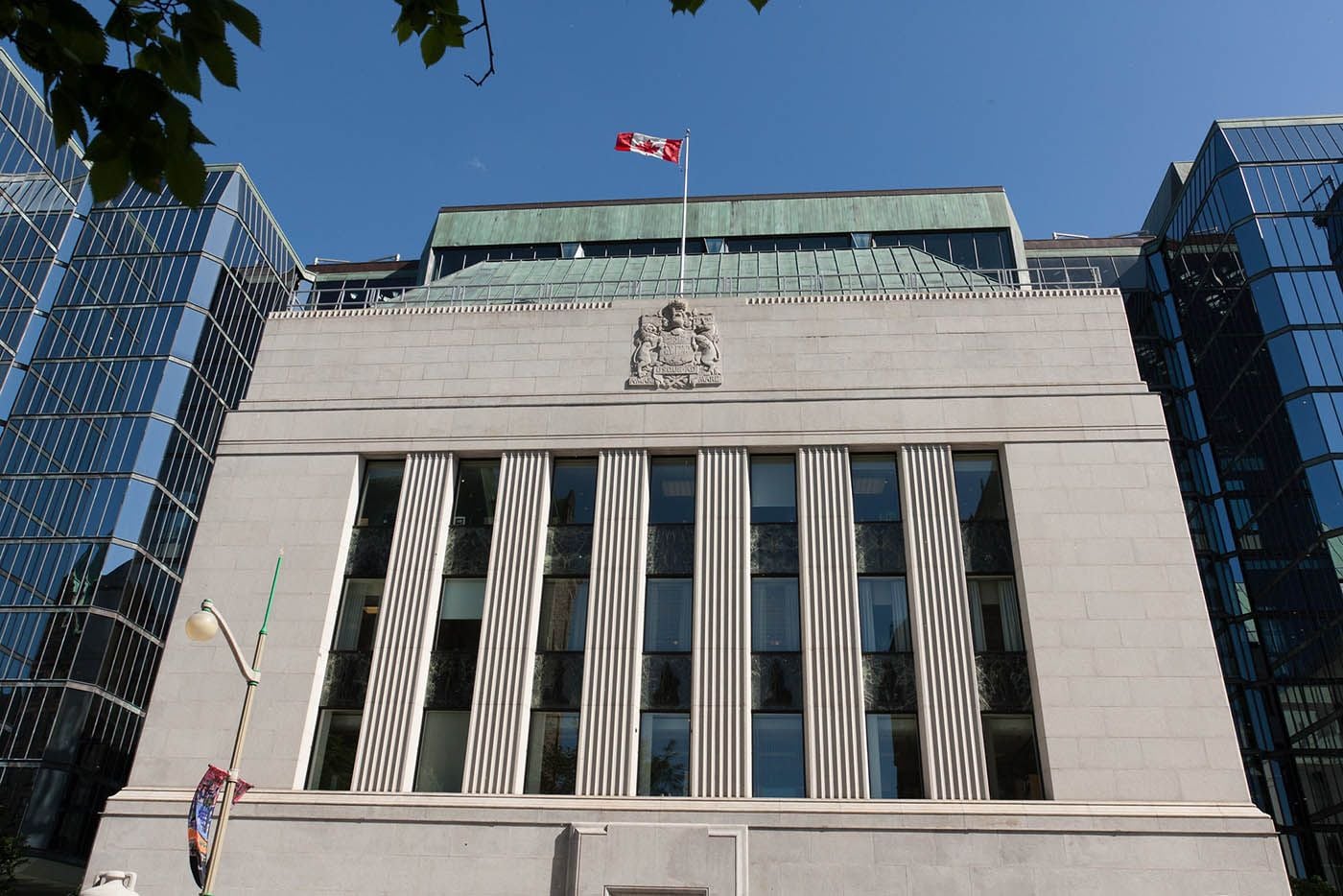Canadian Dollar Appreciates after Bank of Canada says Economy has Avoided Worst-Case Scenario
- BoC cuts back on some support for financial markets
- Says most severe outcome for economy avoided
- Canadian Dollar edges higher

Above: The Bank of Canada, Ottawa. Image reproduced under CC licensing conditions
- GBP/CAD at time of writing: 1.700
- Bank transfer rates (indicative guide): 1.6400-1.6524
- FX specialist rates (indicative guide): 1.6600-1.6850
- More on acquiring market beating rates here
The Canadian Dollar advanced against the Pound, U.S. Dollar and Euro follow the Bank of Canada's June policy meeting where they said the economy had avoided its "most severe scenario" predictions made in May, and conditions have improved enough to slow its repo operations and asset purchases.
In its guidance the BoC softened its worst-case scenario, saying the negative impact of Covid-19 on the economy appears to have peaked.
The Canadian Dollar was seen higher following the event, even if the gains were hardly setting the foreign exchange market ablaze: the Pound-to-Canadian Dollar exchange rate edged back to 1.6980, while the U.S. Dollar-Canadian Dollar exchange rate pared back to 1.3511.
"USD/CAD briefly dipped below 1.35 on the upbeat statement. The 1.3460/200dma support will be closely watched. We are biased to think this will hold as a lot of good news appears to be in the CAD price. But until there is a clear shift in focus to fundamentals, the CAD may be a reluctant participant in this narrative," says Mazen Issa, Senior FX Strategist at TD Securities.
Canadian dollar retaking lost ground after Bank of Canada says the economy has avoided its “most severe scenario”, and funding conditions have improved enough to slow its repo operations and asset purchases: pic.twitter.com/tC4l7pJHom
— Karl Schamotta (@vsualst) June 3, 2020
As expected, the BoC left the overnight rate at 0.25% and made no changes to its Large Scale Asset Purchases programme that sees it create fresh money to buy up Government bonds.
Policy makers did however lower the frequency of operations for repo and bankers' acceptances due to signs of stabilisation in the affected markets. This was gauged by markets to be a slightly bullish outcome from a Canadian Dollar perspective.
"The Bank had accumulated a large swath of short-term securities on its balance sheet, but now that those programs can wind down, the composition of the Bank's balance sheet is likely to change, particularly if further monetary easing is conducted via holding down rates on longer-dated bonds," says Royce Mendes at CIBC Capital Markets.
Economic projections from the BoC's economists show a great deal of uncertainty concerning the economic outlook remains, with the economy likely to contract another 10-20% in the second quarter.
Growth is expected to return in the third and fourth quarters. Owing to the persistent uncertainty facing the global and domestic economy, the BoC refrained from providing any detailed forecasts.
But the June policy meeting was never about what big changes would be announced, rather foreign exchange markets opted to focus on the tone struck by the BoC as this would hint on the potential for future policy decisions. Outgoing Governor Stephen Poloz opted for a cautious, albeit slightly constructive, tone that should not shake the Canadian Dollar from recent ranges.
"As market function improves and containment restrictions ease, the Bank’s focus will shift to supporting the resumption of growth in output and employment. The Bank maintains its commitment to continue large-scale asset purchases until the economic recovery is well underway. Any further policy actions would be calibrated to provide the necessary degree of monetary policy accommodation required to achieve the inflation target," said the BoC in their accompanying statement.




